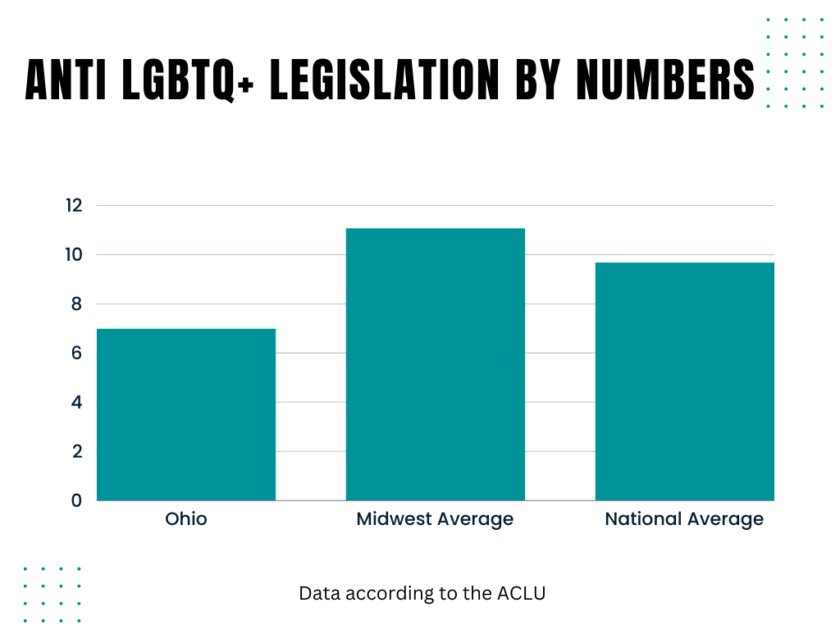House Bill 8, dubbed the “Parents’ Bill of Rights,” and House Bill 183, known as the “Bathroom Bill,” are both expected to be considered by the Ohio legislature this summer. The bill previously passed the Ohio House in February of last year, igniting support and opposition alike in part of a larger conversation about LGBTQ+ rights for youth.

If passed by the state Senate, the Parents’ Bill of Rights would require all educators “prior to providing instruction that includes sexuality content, [to] disclose to parents any instructional material that includes sexuality content.”
Supporters of the bills, including conservative activist group Moms for Liberty, have called the legislation “necessary” to protect youth and repeatedly expressed their endorsement for further legislation and regulation.
The bill additionally states that “the school district shall not inhibit parental access to the student’s education and health records maintained by the school,” which LGBTQ+ rights advocates including the ACLU have argued “eviscerates the trusted relationship between” student and teacher.
If the proposed bill became law, this would require the school district to disclose the information students provide the school to their parents, and schools would be barred from telling students to withhold information about their mental, emotional or physical health.
The bill further clarifies that mental, emotional and physical well-being would include “Any request by a student to identify as a gender that does not align with the student’s biological sex.”
This specific redefinition has faced specific criticisms from LGBTQ+ advocates in the state of Ohio who argue that the bill would force school districts to “out” queer and transgender youth.
Representatives Swearingen and Carruthers sponsored House Bill 8 and were joined by 32 other state representatives in support of the legislation.
House Bill 183 similarly impacts youth education by requiring all students to use the bathroom that corresponds to the gender they were assigned at birth. This would also include locker rooms, shower rooms and changing rooms according to the bill.
These pieces of legislation are just a couple instances of a larger movement among Republican-controlled states in recent years that have sought to regulate life and education for trans youth. The Saving Adolescents from Experimentation Act (SAFE Act) will go into effect in the state of Ohio April 24. Governor Mike DeWine previously vetoed the bill, though his veto was overridden by the legislature and the bill was passed into law.
House Bill 68 known as the SAVE Act, was joined by House Bill 6 the “Save Women’s Sports Act,” which drew criticism and support from across state lines. Former NCAA swimmer Riley Gaines was invited by House Republicans to testify about her experience in the 2022 NCAA championship where she tied for 5th in the 200-yard freestyle with transgender swimmer Lia Thomas.
Last year, Reuters found that across 37 states, more than 142 bills to restrict gender-affirming healthcare were introduced. At least 117 of the bills restrict access to care for minors. Additionally, at least 20 states have passed bills that have “banned or restricted gender-affirming care for trans people.”
It is not yet clear whether Bills 183 or 8 would pass if they are brought to the Senate floor. If previous legislation is any indication, there is a strong chance the bills will go through.


